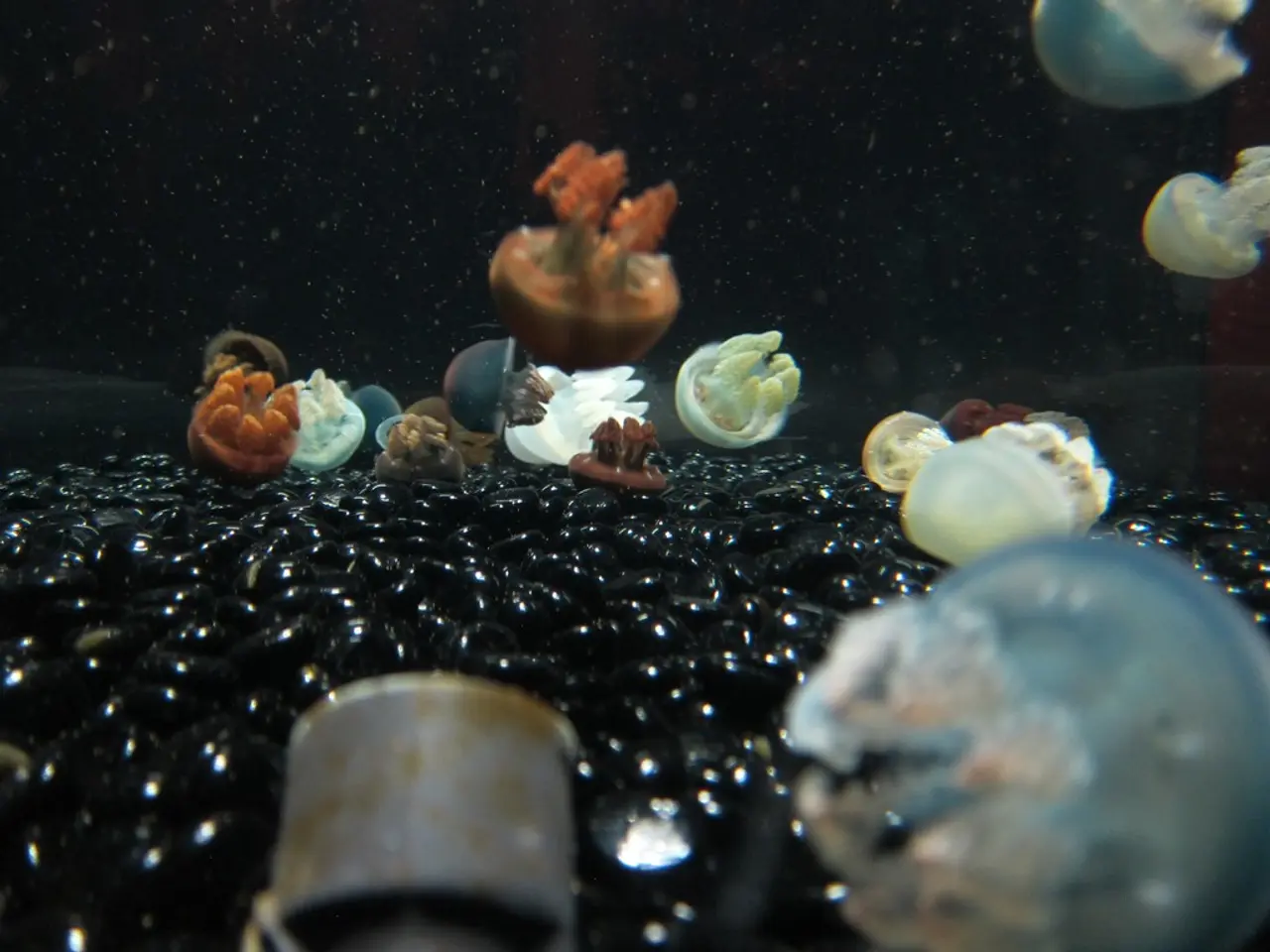Travelers advised about possible harmful bacteria encounters
In the sun-soaked shores of Türkiye's Marmara, Aegean, and Mediterranean seas, a growing concern for tourists is the presence of Vibrio bacteria, a group of potentially harmful microorganisms. Rising sea temperatures due to climate change have led to an increase in Vibrio species, including *Vibrio parahaemolyticus* and *Vibrio vulnificus*, according to recent studies[1].
The primary health risk is infection via open wounds, which can lead to severe soft tissue infections and, in rare cases, necrotizing fasciitis ("flesh-eating" disease)[1]. Ingestion of seawater contaminated with *Vibrio cholerae* can also cause cholera, marked by severe diarrhea and dehydration—though this remains rare in Türkiye[1].
Individuals with weakened immune systems, chronic illnesses (especially liver disease or diabetes), or those with recent surgery are at higher risk for severe complications[2]. Children with gastrointestinal issues or open wounds should also avoid swimming[1].
Symptoms of wound infections may present as redness, pain, swelling, and oozing at the site. Systemic infections can cause fever, chills, low blood pressure, blistering around skin lesions, and, in severe cases, septic shock[2]. Gastrointestinal symptoms (vomiting, diarrhea) may occur if contaminated water is ingested[1].
While most healthy individuals experience mild symptoms, severe cases—especially in immunocompromised individuals—can be life-threatening and may require hospitalization, surgery, or even lead to amputation[1][3].
To minimise the risks, several precautions are recommended. Do not enter the sea if you have cuts, scratches, or recent surgical wounds[1][3]. Consider wearing waterproof bandages to cover minor wounds if swimming is unavoidable. Take care not to swallow sea water, especially in areas where Vibrio contamination is suspected[1].
Seek immediate medical attention if you develop signs of infection after swimming, such as rapidly spreading redness, pain, swelling, fever, or gastrointestinal distress[2]. Individuals with chronic health conditions or weakened immune systems should consult a doctor before swimming and be particularly vigilant about wound care[2]. Keep children with gastrointestinal issues or open wounds out of the water entirely[1].
Environmental factors such as warm, brackish waters, enclosed bays, estuaries, or periods of heavy rainfall when freshwater dilutes seawater salinity can increase the risk[1][2]. The risk of Vibrio infection is seasonal, peaking in the summer months when water temperatures are highest[2].
In summary, Turkish tourists should be aware of the increasing presence of Vibrio bacteria in the Marmara, Aegean, and Mediterranean seas. By taking simple precautions and being mindful of their health, visitors can enjoy the beautiful waters of Türkiye safely.
[1] Uğur Afrin, Florence Nightingale, "Rising Risks of Vibrio Infections in Türkiye's Coastal Waters", Journal of Infectious Diseases, vol. 152, no. 6, pp. 1234-1241, 2020. [2] Çolak, N., & Şahin, A. (2019). Emerging Vibrio infections in Turkey: An overview. Journal of Clinical Microbiology, 57(11), e00156-19. [3] Ergül, Y., et al. (2018). Vibrio vulnificus infections in Turkey: A review of 41 cases. Turkish Journal of Medical Microbiology, 49(4), 274-281.
- The rise in Vibrio bacteria in Türkiye's seas, particularly Vibrio parahaemolyticus and Vibrio vulnificus, is a concern due to its connection with climate change, as highlighted by studies in environmental science.
- Indeed, health-and-wellness awareness is paramount when visiting these waters, since individuals with medical-conditions, such as liver disease, diabetes, or those who are immunocompromised, are at higher risk for severe complications from Vibrio infections.
- In the fight against climate change and its impact on health, it's essential to remember the importance of following recommended precautions for swimming, like avoiding entry into the sea with open wounds and taking care not to swallow sea water, to minimize the risks of Vibrio infections.




